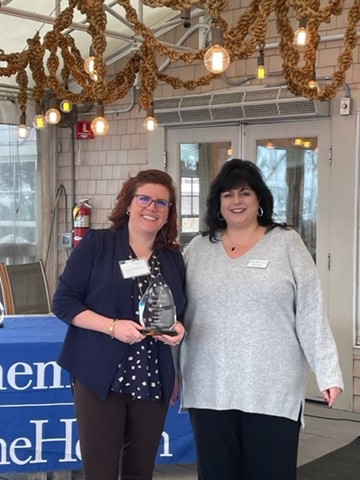We feel confident our kids will be taught reading, writing, and basic math in school. But how will they learn to budget, use a credit card, save for a car or a down payment on a home, and stay out of debt? Just as reading and writing are critical skills for a successful future, so is financial responsibility. Unlike with common academic subjects, however, it often falls on families to teach money-related lessons. Before a teenager leaves the nest, they should know these basic financial concepts to lay a foundation for success in adulthood.
Budgeting and Banking
Allowances are commonly offered to kids as a reward for doing chores. They also provide lessons in saving and budgeting. A monthly allowance—as opposed to a weekly one—gives more opportunities for planning ahead because the cash needs to last longer. Creating a budget with your teen for how to spend an allowance can lead to a discussion about prioritizing needs over wants and figuring out how to spend less on some things so you have more to spend on others. You might suddenly find your kid packing a snack at home, for example, instead of visiting the vending machine at school.
Teens often have additional opportunities to learn money management when they earn cash from part-time jobs or summer work. That additional income means they have more to spend and budget—and they’re attaining more financial independence.
One common approach is to instruct kids to divide their income into three categories: save, spend, and give. Although saving in an envelope or piggy bank might work for young children, opening a savings account for your teen helps them learn about banking in general, accruing interest, and planning for long-term goals. Many banks offer teen checking accounts with a debit card as well as allow parental access and controls.
It might be possible to set up direct deposit for paychecks and have your teenager check the balance from their mobile phone. Looking at the paycheck together can also spark lessons in taxes, such as types of deductions, what the government uses the money for, and who must file a return. This way, you’ll save them from a big surprise when their take-home pay is less than expected. You can also look into youth brokerage accounts to get your teen to learn about investing.
A Course in Good Credit
Once your teen has money in the bank, they’ll need a way to access it. Options include debit cards, prepaid cards, and adding an authorized user to your credit card account. Each of these methods offer lessons in how to spend within your means.
A debit or prepaid card can help your teen start making online and in-person purchases without incurring debt. Practicing using a debit card can get them in the mindset of spending only what they have, which will be helpful when they are eligible for an actual credit card. Although most lenders won’t issue a credit card to anyone younger than 18, adding your teen as an authorized user on your credit card is another option for a starting experience with credit. To maintain the same spend-within-your-means line of thinking that a debit card offers, consider requiring receipts for your teen’s purchases and collecting cash from them for each expense.
Look at the credit card bill together each month, explaining annual fees, interest charges, late payment fees, and—most important—the consequences of amassing credit card debt. Paying the bill together can also help your teen form a habit of checking all charges, getting mistakes or fraudulent charges corrected, and paying attention to due dates.
Once you’ve taught your teen how to responsibly pay the bill, you can explain the basics of credit scores, such as how they’re calculated and how they can affect a person’s ability to borrow and make large purchases as an adult.
Contributing to a Cause
“Spend, save, give” might sound easy, but what would motivate your teen to donate any of their earnings—and to whom should they give? One way to introduce the concept of donating to charity is to share information about the contributions you make, why you chose those organizations, and how the recipients benefit from your help. Perhaps your teen is an animal lover, has a friend battling a disease, has a relative who is a veteran, or is interested in another cause that would benefit from a donation.
After selecting a charity, discuss the importance of researching organizations to confirm their legitimacy and to verify that any contributions directly benefit those in need. Lastly, educate your teen about itemized tax deductions and how charitable donations to qualified organizations can reduce your tax bill.
Staying Safe from Scams
Just as you’ve taught your child general online safety, there are new lessons to learn once debit cards, banking apps, and online donations enter the mix. It’s important that your teen knows never to share passwords, online banking information, or account numbers. Help them regularly check credit card bills or debit accounts for fraudulent charges and guide them through reporting purchases they don’t recognize.
If you have questions about how to communicate these—or any other financial concepts—to your teen, please reach out to our office. We aim to help your whole family achieve financial success.
© 2023 Commonwealth Financial Network®









